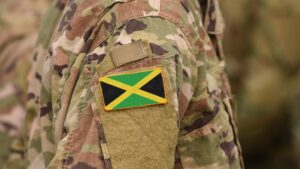
Time for Government and Accompong Maroons to talk
The Jamaican Government, we hear, was not represented at the 285th annual Accompong Maroons celebration in St Elizabeth on Friday, January 6.
That was the first such full-scale anniversary celebration in Accompong since the novel coronavirus pandemic triggered public restrictions in 2020.
For as long as most of us can remember the Jamaican Government has been well-represented at the annual event — traditionally highly placed on the nation’s cultural calendar and a lure for local and overseas visitors.
Indeed, the culture ministry has usually played a central role in organising the annual event.
We know that the Government and the leadership of Accompong have been at loggerheads for some time. That’s in regards to claims by the latter that the historic Maroon community on the south-western fringes of the Cockpit Country is a sovereign state.
We are reminded that early last year Accompong leader, Mr Richard Currie, filed a lawsuit against the Government for allegedly violating what he claims is the Maroon community’s constitutionally protected right to ownership of the Cockpit Country.
Mr Currie is seeking to have the court order that the area belongs to Maroons and should not be mined by private companies.
An obviously annoyed Prime Minister Andrew Holness said early last year that “…under my leadership, not one inch of Jamaica will come under any other sovereign authority…”
We recall news reports at the time that Cabinet had instructed government departments and agencies to withhold funding for projects in regions which claim to be sovereign of the Jamaican State.
We are left to assume that the Government’s no-show in Accompong last Friday was directly related to last year’s quarrels and disagreements.
Unsurprisingly, Opposition Leader Mr Mark Golding and other members of his People’s National Party (PNP) were very much in attendance. After all, regardless of talk about sovereignty, residents of the Maroon community are on Jamaica’s voters’ list.
Yet, regardless of any perceived political motive, Mr Golding gave sensible advice, urging “respectful dialogue through an institutionalised mechanism for inclusive and constructive engagement” between Government and Maroons.
Also, we note the assurance from Mr Currie — amid much rhetoric — that, “It is my intention and hope that we will be able to fix this relationship with the Government and fix it quickly…”
Make no mistake, the Maroons are central to Jamaican history and culture.
It’s a fact that their ancestors infamously played a considerable role in the suppression of slave uprisings as well as the Morant Bay insurrection of 1865 as a result of their ‘blood oath’ treaty with the British in the late 1730s. On the other hand, the Maroon example in determinedly resisting British colonisers for 80-odd years prior to that treaty is priceless.
Back in 2012, as she discussed the complex historic relationship between Maroon communities and wider Jamaica at a symposium in Accompong, respected historian Professor Verene Shepherd urged, “Let’s talk, people, let’s talk.” We note she is still making that appeal, along the lines of a peace and reconciliation methodology made famous in post-apartheid South Africa.
It’s an option we believe all parties should consider, not just in relation to so-called sovereignty, but most crucially against the wider, deeper backdrop of history’s uncomfortable truths.
























